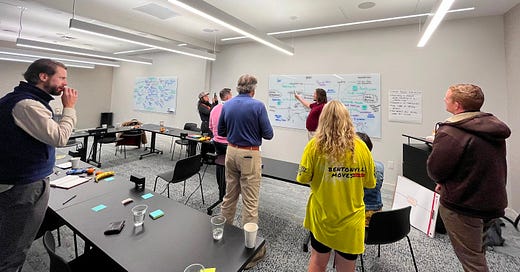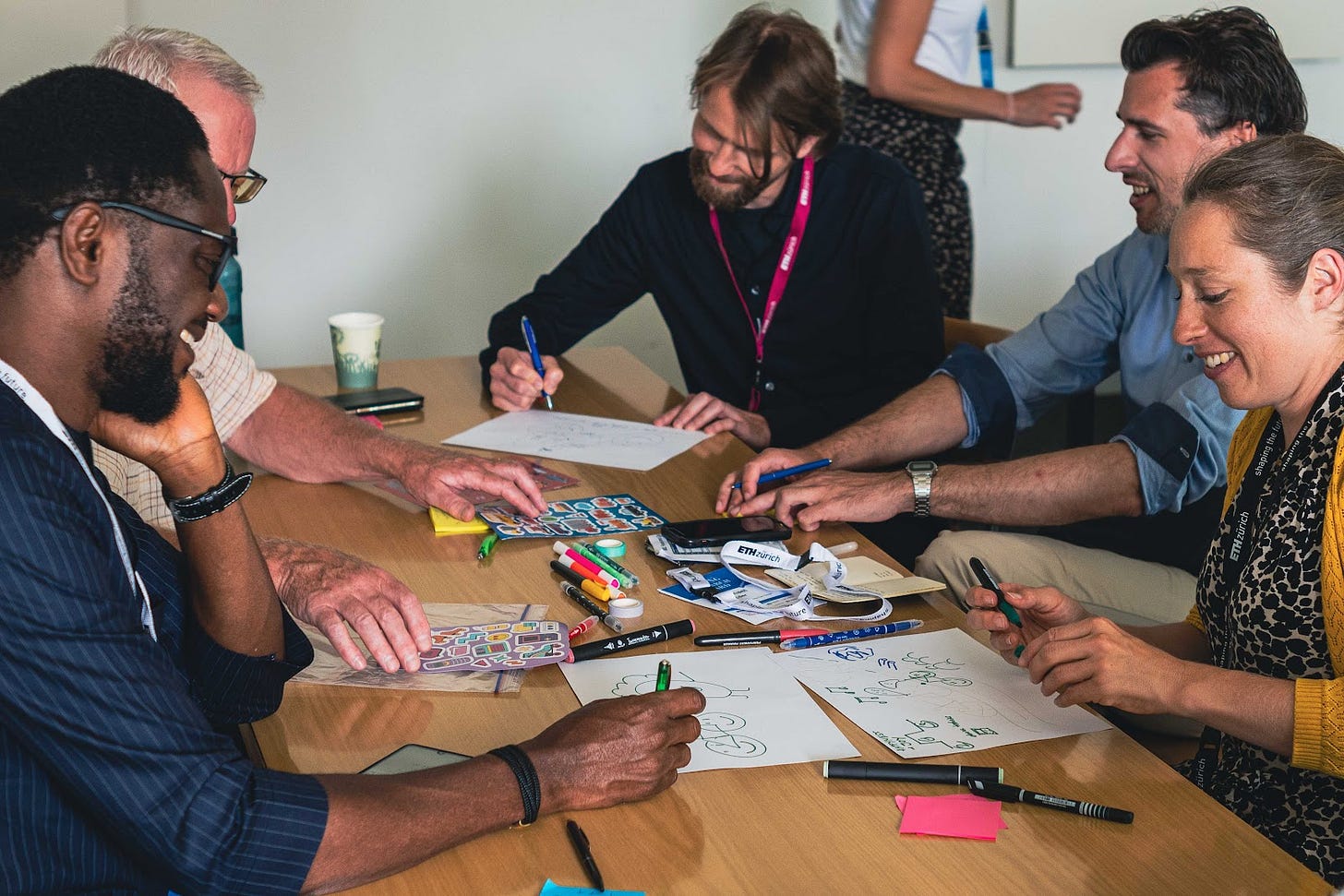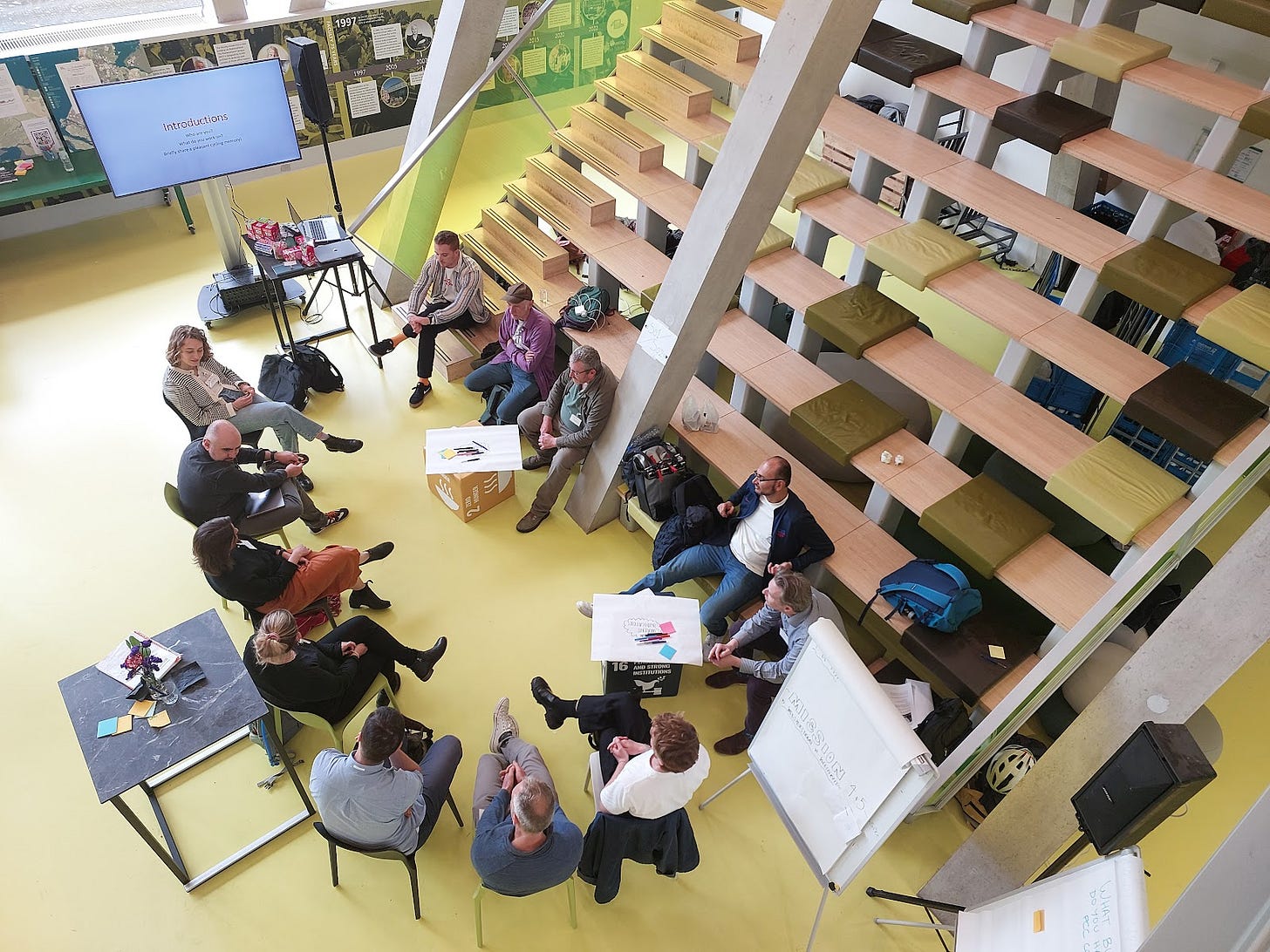3 Tips For Overcoming Challenges In Conducting Real-World Cycling And Active Mobility Research
Interview | Best Practices | Applied Research
Interventions to promote cycling vary greatly from policy interventions to grass-roots initiatives to social movements and mass media campaigns. While a significant body of evidence exists documenting the various types of interventions (and oftentimes their implementation and evaluation), much of the evidence remains in isolation – not acknowledging the interconnected and complex nature of the system in which cycling is and sits within. Recently, our Senior Researcher Dr Dylan Power sat down with students from the MSc in Climate Psychology and Behaviour at the Amsterdam University of Applied Sciences to discuss the challenges and opportunities of conducting real-world research in cycling and active mobility.
Challenges in conducting policy and practice relevant research
A large body of evidence exists for cycling as it relates to public health and physical activity, the majority of which is based on small-scale, individual level studies from many contexts which have been shown to be efficacious. But we also know that these types of interventions hold low to modest levels of impact on systems level behaviour change. Thus, the interest in systems approaches to health behaviour and other complex societal challenges are growing and as a result, more policymakers, funders and governments are dealing with proposals and collaboration opportunities which differ from the status quo. Although working across disciplines and sectors does not come without its challenges, the importance of building relationships and trust cannot be underestimated:
“I think it’s important to look at it from the perspective of the policy makers and funders. They are tasked with providing funding for projects that they know – or at least have a fair idea – will “work”. And what we know will work, based on the evidence base that we have, are individual level, small scale interventions which showcase evidence for efficacy not effectiveness. So if you put yourself in their shoes, it might be seen as a risky move to fund a systems approach to, say, sustainable mobility behaviour at the city level when there are no previous examples showing that it “works”. However, one piece of advice I would provide is that nothing about creating systemic change will happen overnight, and the importance of relationship building with those working on the ground and those at the policy level is super important in building trust and rapport.”
One of the core challenges faced by those involved in the delivery of multidisciplinary research projects aimed at creating behaviour change at the systems level is often ensuring that all stakeholders are on the same page.
“In our multidisciplinary projects we focus on getting people to speak the same language. My role is focused on cycling and active mobility - and for some stakeholders, the language around cycling is their mother tongue. It's what they do in their day-to-day. It's in their work packages and written in their programme of work or contract. Whereas for others, cycling and active mobility is a secondary language that they speak – it's not explicit in their role but their role has an impact on the dynamics of the system. So some of the stakeholders that we work with at the moment in different projects might be public health professionals, urban designers, engineers, educators, researchers and so on. All of these people speak different languages, and I think getting them all singing from the same hymn sheet is at the crux of multidisciplinary work and systems approaches to complex problems.”
Tips for overcoming challenges in real-world projects
When asked to provide some advice for those working on projects with multidisciplinary stakeholders to overcome some of the challenges involved, Dylan gave 3 pieces of advice:
#1: (Co)Defining the outcome from the outset
It is crucial to the direction and success of a systems approach to develop an understanding of the outcome you are interested in, with the stakeholders and individuals you are working with.
“All stakeholders should decide together ‘what is it that we are interested in changing?’. Is it more people cycling more often in Madrid? Less people using their cars for trips less than 5km in Ghent? It’s important that these big picture goals are clearly outlined from the beginning so that everybody is working towards that.”
#2: Don’t reinvent the wheel
Streamlining the approaches and ways we work promote cross-disciplinary collaboration by leaning on tools that already exist can help kick start your projects.
“I think as researchers we're often obsessed with the idea of being novel and creating shiny new frameworks and theories, but there is a lot of really of good stuff out there from lots of different fields of work that you can use to kind of streamline the way that you get people to work together and buy-in to a project. For example, things like The United Nations’ Sustainable Development Goals, or The Global Action Plan for Physical Activity are two great frameworks that stakeholders can buy into, apply to their specific context, and can act as really nice tools of framing a project in from a ‘big-picture’ systems perspective.”
#3: Ask yourself “So what?”
Being flexible and adaptive to the system you are working with (or trying to change), as well as being pragmatic about how you approach your work, can help keep the focus on what matters.
“To influence policy and practice in our research, we need to continuously ask ourselves, “So what? So what? So what?”. It’s very easy to get caught up in research papers and articles and stay in our research bubbles, but constantly asking ourselves, “what does it mean for the people on the ground? What does it mean for the policymakers? What does it mean for the person who you’re ultimately trying to change their behaviour?”. If it’s mothers and children in Amsterdam that you want to get to cycle to school more - what does using this theory, or this type of workshop, mean for them? This helps us arrive at the pragmatic, tangible core of the work. All of the research that we do at the Urban Cycling Institute – and definitely my approach to research – is trying to be as pragmatic as possible. I think influencing policy and practice is ultimately what we should be striving to do as researchers, anyway!”
Written by , Senior Researcher at Urban Cycling Institute
Interested in writing or sponsoring an article? Send us a pitch at media@urbancyclinginstitute.org
If you are interested in learning more about the policy and practice relevant research conducted at Urban Cycling Institute, take a look at our project archive here, or if you have any specific questions for Dylan you can reach him at dylan@urbancyclinginstitute.org
Learn more:









